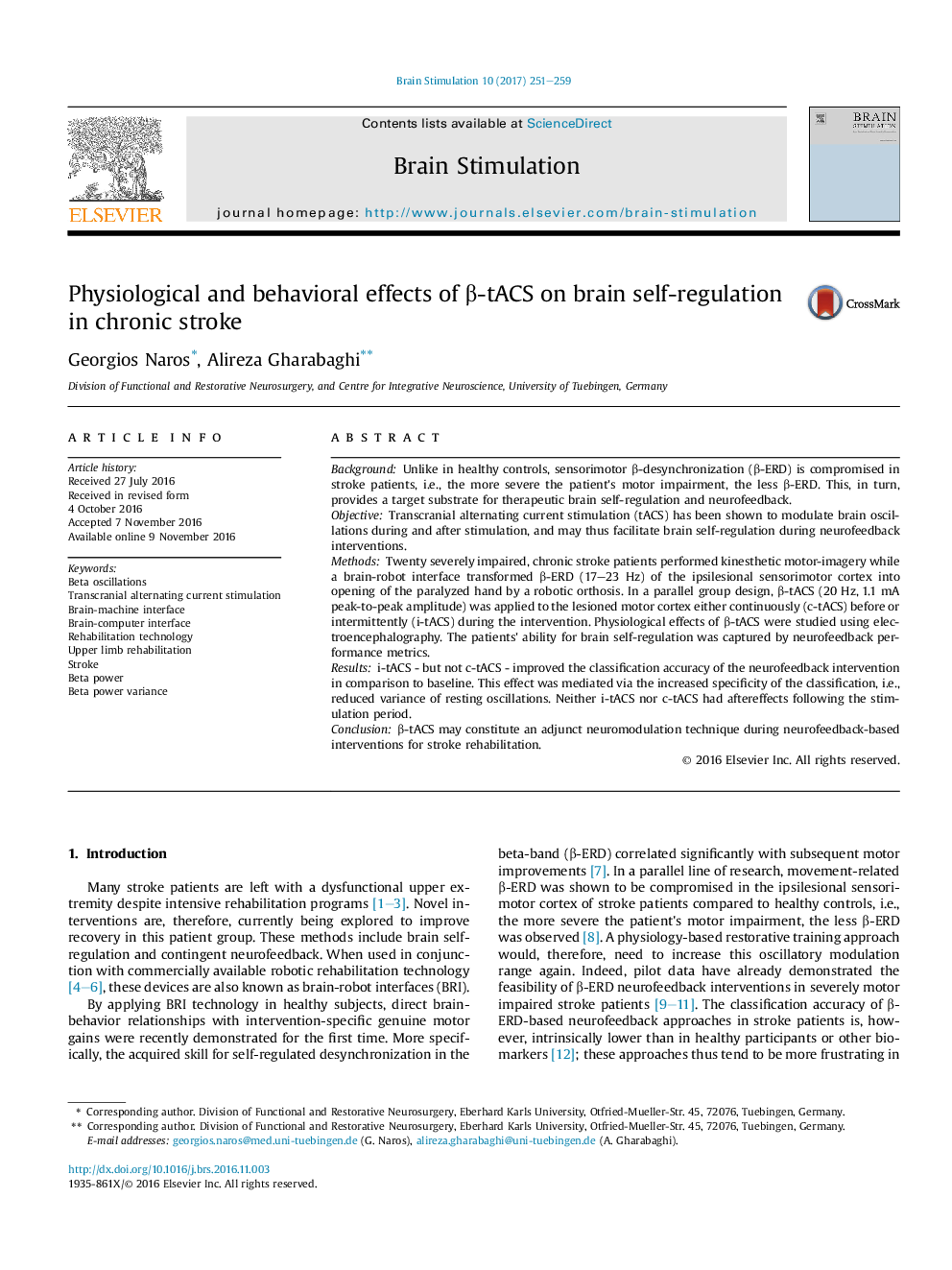| کد مقاله | کد نشریه | سال انتشار | مقاله انگلیسی | نسخه تمام متن |
|---|---|---|---|---|
| 5626696 | 1406326 | 2017 | 9 صفحه PDF | دانلود رایگان |

- β-tACS reduces the intrinsic variance of sensorimotor β-oscillations.
- β-tACS effects are instantaneous rather than lasting.
- β-tACS increases the specificity of brain self-regulation-based neurofeedback in stroke patients.
BackgroundUnlike in healthy controls, sensorimotor β-desynchronization (β-ERD) is compromised in stroke patients, i.e., the more severe the patient's motor impairment, the less β-ERD. This, in turn, provides a target substrate for therapeutic brain self-regulation and neurofeedback.ObjectiveTranscranial alternating current stimulation (tACS) has been shown to modulate brain oscillations during and after stimulation, and may thus facilitate brain self-regulation during neurofeedback interventions.MethodsTwenty severely impaired, chronic stroke patients performed kinesthetic motor-imagery while a brain-robot interface transformed β-ERD (17-23 Hz) of the ipsilesional sensorimotor cortex into opening of the paralyzed hand by a robotic orthosis. In a parallel group design, β-tACS (20 Hz, 1.1 mA peak-to-peak amplitude) was applied to the lesioned motor cortex either continuously (c-tACS) before or intermittently (i-tACS) during the intervention. Physiological effects of β-tACS were studied using electroencephalography. The patients' ability for brain self-regulation was captured by neurofeedback performance metrics.Resultsi-tACS - but not c-tACS - improved the classification accuracy of the neurofeedback intervention in comparison to baseline. This effect was mediated via the increased specificity of the classification, i.e., reduced variance of resting oscillations. Neither i-tACS nor c-tACS had aftereffects following the stimulation period.Conclusionβ-tACS may constitute an adjunct neuromodulation technique during neurofeedback-based interventions for stroke rehabilitation.
Journal: Brain Stimulation - Volume 10, Issue 2, MarchâApril 2017, Pages 251-259